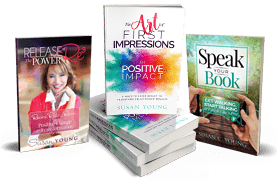 Why Respond? It allows you to engage with others in a calm, healthy, and appropriate manner for a productive, respectful, and proactive conversation.
Why Respond? It allows you to engage with others in a calm, healthy, and appropriate manner for a productive, respectful, and proactive conversation.
Emotional Intelligence
EI (Emotional Intelligence) means: the capacity to be aware of, control and express one’s emotions, and to handle interpersonal relationships judiciously and with empathy. How do you respond in conversations and situations?
The ability to respond with dignity, discretion, and wisdom is a mark of a person’s character and EI (Emotional Intelligence). The first two steps to improving your EQ (Emotional Quotient) are developing greater self-awareness and enhancing your capacity for self-regulation. When each is developed and improved, a person is more likely to respond thoughtfully than to react carelessly.
Respond for a Breakthrough not a Breakdown
When change happens, you have a choice in how you are going to respond. You can either lose your composure and react impetuously or use the event or situation as a learning opportunity to shift your mindset and respond appropriately. Begin to notice your responses when changes occur:
- Do you react with resistance and uncontrolled emotion?
- Do you anger easily and regret actions later?
- Do you hold onto bitterness, grudges, and resentment by complaining?
OR . . .
- Do you accept the change and adjust accordingly?
- Do you look for gifts in the pain and learn the lesson?
- Do you realize that to adapt to the change, YOU may have to change?
Regardless of your answers to these questions, become aware of whether your initial responses are typically helpful or hurtful to yourself or others. You might not be able to control the changes around you, but you can certainly determine how you choose to respond. It’s your choice. Be smart about it.
The Energy Leadership Index
ELI (Energy Leadership Index) is an attitudinal assessment which will help you evaluate how you respond to change in situations by measuring your energy and action. Your attitudes, behaviors, and abilities in a crisis reveal your character, personality, and coping skills. Be willing to use the information about how you respond as a way to gauge your personal growth without judgment or condemnation. Use this assessment to become more aware of the ways that you’re being triggered or feeling you’re a victim. Learn to use your responses in this exercise as a guide for responding well in the future.
The Dreaded Drama Triangle
Many of us react to change from a victim mentality without even realizing it. Respected psychiatrist Steven Karpman designed the “Drama Triangle” to illustrate the roles we play when we are caught in drama. The three roles are: The Persecutor, The Rescuer, and the Victim. Which, if any, of the three roles—Persecutor, Rescuer, Victim—rings true for you?
Regardless of which one we are playing, the triangle can be a hotbed for denial, guilt, shame, anger, fear, dishonesty, blame, and pain. People who are operating from a victim mentality will often respond in one of four ways:
- Fight
- Flight
- Freeze
- Appease
To become the creator of your life and stand in your power, choose to remove yourself from the “Drama Triangle.” The great news is that shifts happen and you can learn to respond and participate in a more favorable way. Rather than staying stuck in drama, you can enjoy empowerment and more favorable outcomes by:
- Being a Creator rather than a Victim
- Being a Coach rather than a Rescuer
- Being a Challenger rather than a Persecutor
To explore more and implement Steven Karpman’s game-changing solutions, check out his book, The Power of TED: the Empowerment Dynamic.
This blog is an excerpt from her new book, Release the Power of Re3 . . . Review, Redo & Renew for Positive Change & Transformation. To learn more, please visit www.SusanCYoung.com or www.amazon.com/author/susancyoung.






